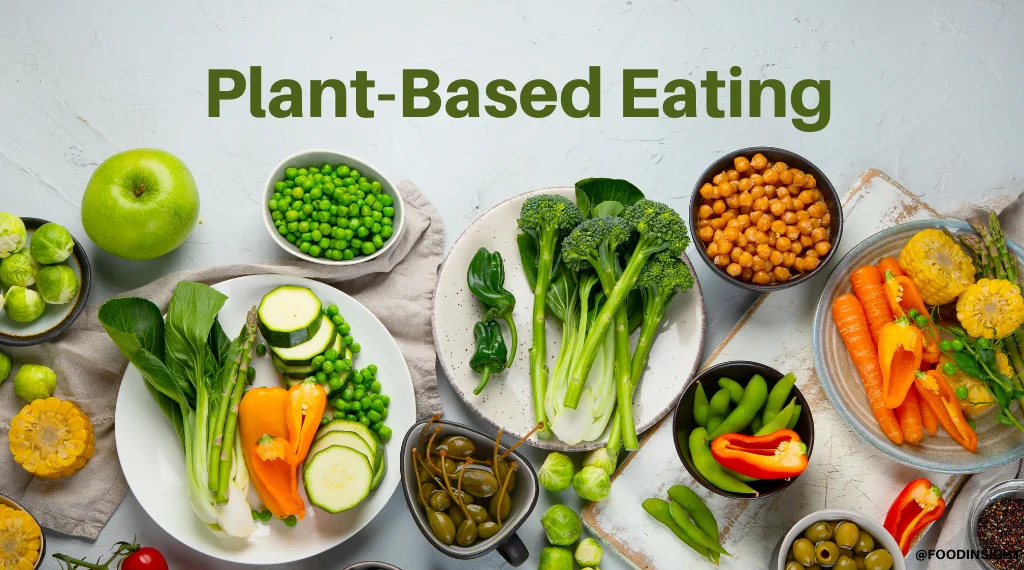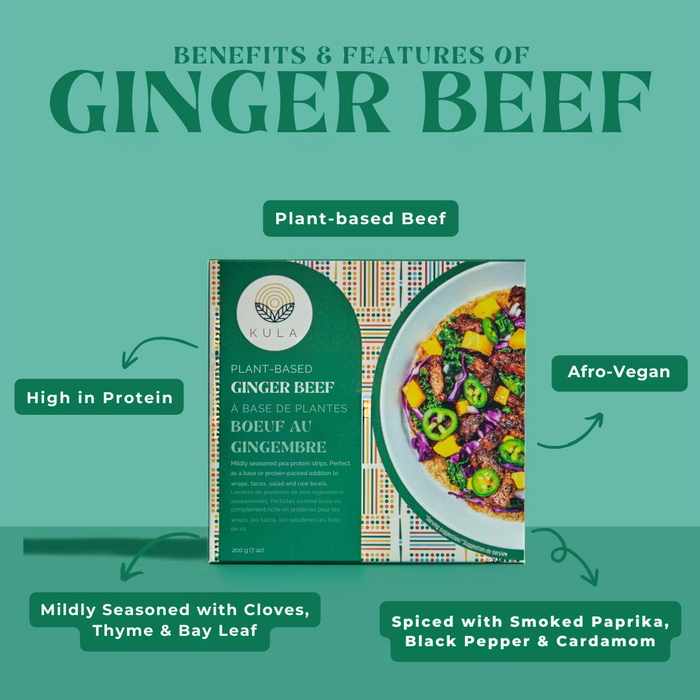What Athletes Say About Recovering on a Plant Based Beef Diet
What Athletes Say About Recovering on a Plant Based Beef Diet
Blog Article
Everything About Healthy And Balanced Food: Advantages of Taking On Plant Based Alternatives
The conversation bordering plant-based diet regimens has obtained considerable focus recently. Lots of people are checking out the prospective health benefits, dietary advantages, and environmental impacts connected with these nutritional options. As people become much more familiar with their food's influence on well-being and sustainability, concerns arise about the functionalities of embracing such a lifestyle. What specific modifications can one anticipate, and how might these options reshape not only individual health and wellness but also the earth's future?
Comprehending Plant-Based Diets
Many people associate plant-based diet regimens primarily with vegetarianism or veganism, these diet regimens can include a broad array of eating patterns that focus on whole, minimally refined plant foods. Such diets commonly include fruits, veggies, entire grains, legumes, seeds, and nuts, while restricting or eliminating animal items. This versatility permits individuals to tailor their nutritional choices according to nutritional demands and personal choices. Some may take on a largely plant-based diet while still sometimes consuming meat or dairy, often referred to as a flexitarian strategy. The focus remains on including even more plant foods, which can bring about a diverse range of dishes and tastes. Comprehending these numerous analyses of plant-based eating is essential for appreciating its access and appeal in contemporary food culture.
Health And Wellness Benefits of Plant-Based Foods
The health and wellness advantages of plant-based foods are substantial, supplying a nutrient density advantage that supports total well-being. Research suggests that these foods can enhance heart wellness and play an important function in efficient weight administration. By integrating a lot more plant-based alternatives, people might boost their nutritional options and advertise long-lasting health.
Nutrient Density Advantage
Nutrient density plays an important role in the health benefits of plant-based foods, making them an engaging selection for those looking for a well balanced diet regimen. Plant-based foods, such as fruits, veggies, beans, nuts, and entire grains, are often abundant in crucial vitamins, minerals, and anti-oxidants while being lower in calories. This high nutrient density allows people to take in fewer calories while still meeting their nutritional needs. Additionally, these foods are loaded with nutritional fiber, advertising digestion health and wellness and helping in weight management. By incorporating nutrient-dense plant-based alternatives, customers can enhance their total health and wellness, support their immune systems, and lower the threat of chronic diseases. Ultimately, the nutrient thickness of plant-based foods highlights their value in a health-conscious way of life.
Heart Wellness Enhancement
:max_bytes(150000):strip_icc()/VWF-Plant-Based-Eating-V6-edit1-0a05c9c9c14e489b8e981fbb0221d49e.jpg)
Weight Administration Support
Along with advertising heart health, a plant-based diet plan can considerably assist in weight administration. This dietary strategy highlights whole foods such as fruits, vegetables, beans, nuts, and entire grains, which are usually lower in calories and greater in fiber contrasted to animal-based products. The high fiber web content aids enhance satiation, lowering overall calorie intake. Additionally, plant-based diets are often rich in necessary nutrients while reduced in harmful fats, making it easier to maintain a healthy weight. Sugar Free Sauces. Research study shows that people that embrace a plant-based lifestyle tend to have lower body mass indexes (BMIs) and experience more successful weight reduction compared to those who take in meat-heavy diet plans. As a result, welcoming plant-based choices is a tactical selection for reliable weight administration
Nutritional Value of Plant-Based Active Ingredients
Plant-based active ingredients are abundant in important nutrients, offering a varied variety of vitamins, minerals, and antioxidants that add to overall wellness. A contrast of protein sources reveals that while animal products are commonly deemed superior, many plant-based options supply ample healthy protein and various other beneficial substances. Recognizing the dietary worth of these components can assist individuals make informed dietary selections.
Crucial Nutrients in Plants
Nutrient-rich active ingredients located in plants use a varied array of vital minerals and vitamins that contribute significantly to overall wellness. These active ingredients are rich in vitamins A, C, and K, which support immune feature, vision, and blood clot, respectively. In addition, plants supply essential minerals such as potassium, calcium, and magnesium, essential for heart wellness, muscle mass function, and bone toughness. The existence of fiber in plant-based foods aids food digestion and promotes a healthy and balanced digestive tract microbiome. Antioxidants, located generously in vegetables and fruits, assistance combat oxidative anxiety and decrease inflammation. Many plant foods are reduced in calories yet high in nutrients, making them a superb selection for those seeking to maintain a healthy weight while making certain excellent nutrient intake.

Contrasting Healthy Protein Sources
Protein sources differ considerably in their dietary accounts, with plant-based components using special advantages. Unlike animal proteins, which often contain hydrogenated fats and cholesterol, plant healthy proteins tend to be lower in these harmful elements. Legumes, nuts, seeds, Plant Based Beef and entire grains are abundant in crucial amino acids, fiber, vitamins, and minerals. Lentils give high protein material along with considerable iron and folate, while quinoa is a complete healthy protein, offering all nine essential amino acids. In addition, plant-based proteins are often come with by antioxidants and phytochemicals that sustain overall wellness. The shift to plant-based healthy protein sources not just improves dietary intake but likewise straightens with sustainable dietary methods, minimizing environmental effect and promoting long-lasting health benefits.
Ecological Impact of Plant-Based Eating
As recognition of climate adjustment expands, numerous individuals are exploring sustainable dietary choices that can significantly decrease their environmental impact. Plant-based consuming has actually become a substantial contributor to reducing greenhouse gas discharges, which are largely linked with livestock manufacturing. The farming of fruits, vegetables, grains, and vegetables usually needs fewer sources, such as water and land, compared to animal farming. Furthermore, plant-based diets can cause decreased deforestation, as much less land is required for grazing animals or expanding animal feed. By shifting towards plant-based choices, customers can support biodiversity and advertise much healthier ecosystems. Overall, embracing plant-based eating not just benefits individual wellness however also stands for a crucial step toward environmental sustainability and preservation initiatives.
Conquering Common Misconceptions
While many individuals identify the benefits of a plant-based diet, several mistaken beliefs often discourage them from totally welcoming this way of life. An usual belief is that plant-based diet regimens lack sufficient protein; nonetheless, many plant sources, such as vegetables, nuts, and tofu, supply sufficient protein. Additionally, some presume that this diet is pricey, when in reality, staples like beans, rice, and seasonal veggies can be fairly economical. One more false impression is that plant-based consuming is overly restrictive, whereas it in fact uses a diverse range of foods and flavors. Many fret that a plant-based diet might lead to deficiencies, yet with proper preparation, individuals can obtain all required nutrients, consisting of vitamins and minerals, while taking pleasure in a broad selection of scrumptious dishes. Broad Tips for Transitioning to a Plant-Based Way of life
Making the change to a plant-based way of living can be an improving experience, though it commonly requires some support to navigate the first modifications. People are encouraged to start progressively, integrating more fruits, vegetables, vegetables, and entire grains right into their meals while lowering meat and dairy products intake. Dish planning is important; preparing an once a week food selection can assist reduce the change and prevent last-minute unhealthy choices. Checking out brand-new dishes and cooking techniques can also enhance the experience and preserve enjoyment regarding plant-based consuming. In addition, signing up with support system or communities can offer motivation and share important tips. Staying informed about nourishment assurances well balanced meals, stopping deficiencies while promoting a healthy, satisfying plant-based lifestyle.

Delicious Plant-Based Meal Concepts
Discovering tasty plant-based dish concepts can inspire people to welcome a more nourishing diet. One prominent choice is a hearty quinoa salad, including cherry tomatoes, cucumber, and a tangy lemon-tahini clothing. An additional fave is a full-flavored lentil stew, packed with carrots, celery, and great smelling natural herbs, perfect for a comforting supper. For morning meal, overnight oats made with almond milk, chia seeds, and topped with fresh berries supply a nourishing beginning to the day. In addition, a dynamic vegetable stir-fry with tofu and a variety of colorful veggies can be a quick yet satisfying meal. Luscious avocado salute on whole-grain bread, sprinkled with spices and seeds, uses a basic yet savory snack. These meals display the selection and richness of plant-based eating.

Frequently Asked Concerns
Can a Plant-Based Diet Supply Enough Protein?
The question of whether a plant-based diet can supply enough healthy protein prevails. Many resources, including vegetables, nuts, seeds, and whole grains, can satisfy protein requires properly, sustaining a healthy and well balanced diet plan for individuals.
Are Plant-Based Diet Plans Appropriate for Children?
The viability of plant-based diets for children depends on cautious planning. Ample nutrients should be assured, including proteins, minerals, and vitamins. With correct support, such diet regimens can support healthy and balanced growth and advancement in youngsters.
Just how Do I Eat in restaurants on a Plant-Based Diet?
Dining out on a plant-based diet regimen involves seeking dining establishments with diverse menus, requesting for modifications, and checking out vegan-friendly alternatives. Planning ahead and interacting nutritional preferences can enhance the eating experience while preserving dietary selections.
What Are Typical Irritants in Plant-Based Foods?
Usual irritants in plant-based foods consist of soy, gluten, nuts, and seeds - Plant Based Chicken. People complying with a plant-based diet regimen should recognize these allergens and check out tags meticulously to stay clear of damaging reactions and guarantee safe usage
Can Plant-Based Diets Assist With Fat Burning?
Research indicates that embracing a plant-based diet might assist in weight-loss due to its typically reduced calorie density and greater fiber web content. This combination can boost satiety, helping individuals handle their caloric consumption effectively. Many individuals connect plant-based diet regimens mostly with vegetarianism or veganism, these diets can incorporate a vast range of consuming patterns that focus on entire, minimally refined plant foods. Nutrient thickness plays an essential function in the health and wellness benefits of plant-based foods, making them a compelling option for those seeking a balanced diet regimen. Plant-based diet regimens have actually been revealed to markedly improve heart wellness, as they often have components that sustain cardiovascular function. In enhancement to advertising heart health and wellness, a plant-based diet can substantially assist in weight administration. A typical belief is that plant-based diet plans do not have sufficient healthy protein; however, countless plant resources, such as beans, nuts, and tofu, give adequate healthy protein.
Report this page